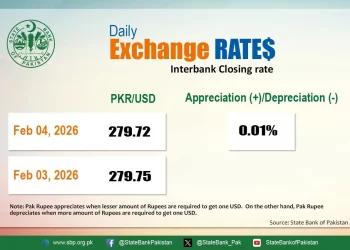LONDON: Oil fell on Friday, heading for a weekly drop of more than 3%, pressured by easing concerns over supply risks from the Israel-Hezbollah conflict and the prospect of more ample supplies in 2025 even as OPEC+ is expected to extend output cuts.
Israel and Hezbollah traded accusations on Thursday over alleged violations of the ceasefire that came into effect the previous day. Nonetheless, their ceasefire deal reduced oil’s risk premium this week, sending prices lower.
Brent crude was down 48 cents, or 0.7%, at $72.80 a barrel by 0930 GMT. U.S. West Texas Intermediate crude futures were at $68.68, down 20 cents, or 0.3%, from the last close before Thursday’s Thanksgiving holiday. Brent is down 3.3% over the week while WTI has lost 3.8%.
The Middle East conflict has not disrupted supply, which is expected to be more ample in 2025. The International Energy Agency sees the prospect of more than 1 million barrels per day (bpd) of excess supply – equal to more than 1% of global output.
“The updated snapshot insinuates that next year promises to be looser than the current one and oil prices are to average below the 2024 level,” said Tamas Varga of oil broker PVM.
Oil up as Israel, Hezbollah trade accusations of ceasefire violation
The OPEC+ group comprising the Organization of the Petroleum Exporting Countries and allies including Russia delayed its next policy meeting to Dec. 5 from Dec. 1. OPEC+ is expected to decide on a further extension to production cuts at the meeting.
BMI, a unit of Fitch Solutions, downgraded its Brent price forecast on Friday to $76 in 2025 from $78 previously, citing a “bearish fundamental outlook, ongoing weakness in oil market sentiment and the downside pressure on prices we expect to accrue under Trump”.
“Although we expect the OPEC+ group will opt to roll over the existing cuts into the new year, this will not be sufficient to fully erase the production glut we forecast for next year,” BMI analysts said in a report.
Adding some support, U.S. crude inventories fell by 1.8 million barrels, weekly data showed, against expecations of a 605,000-barrel decline.









